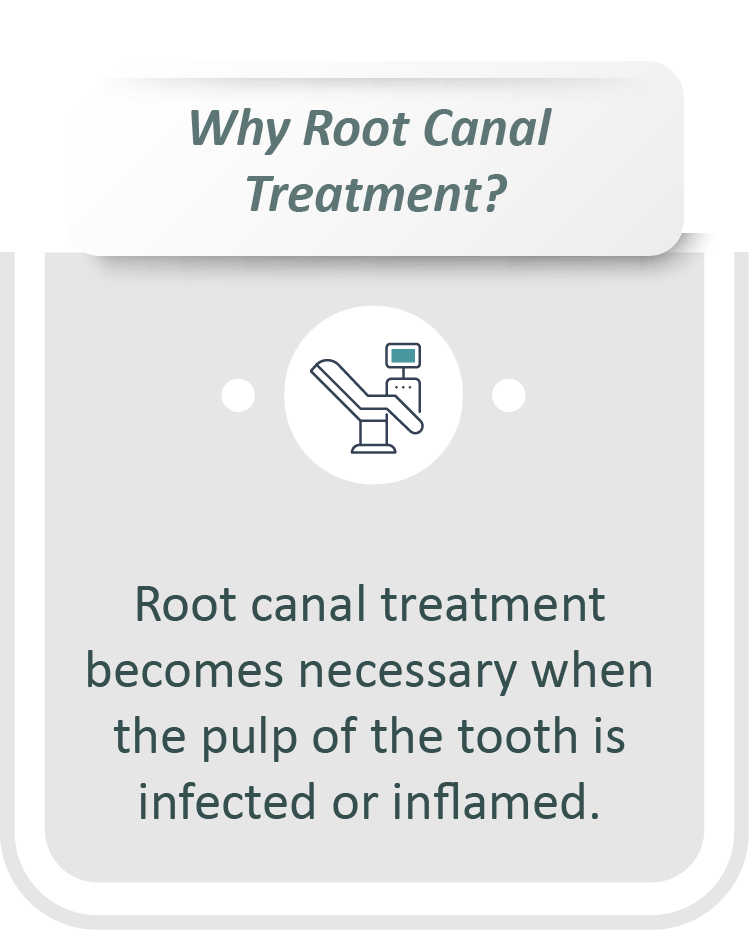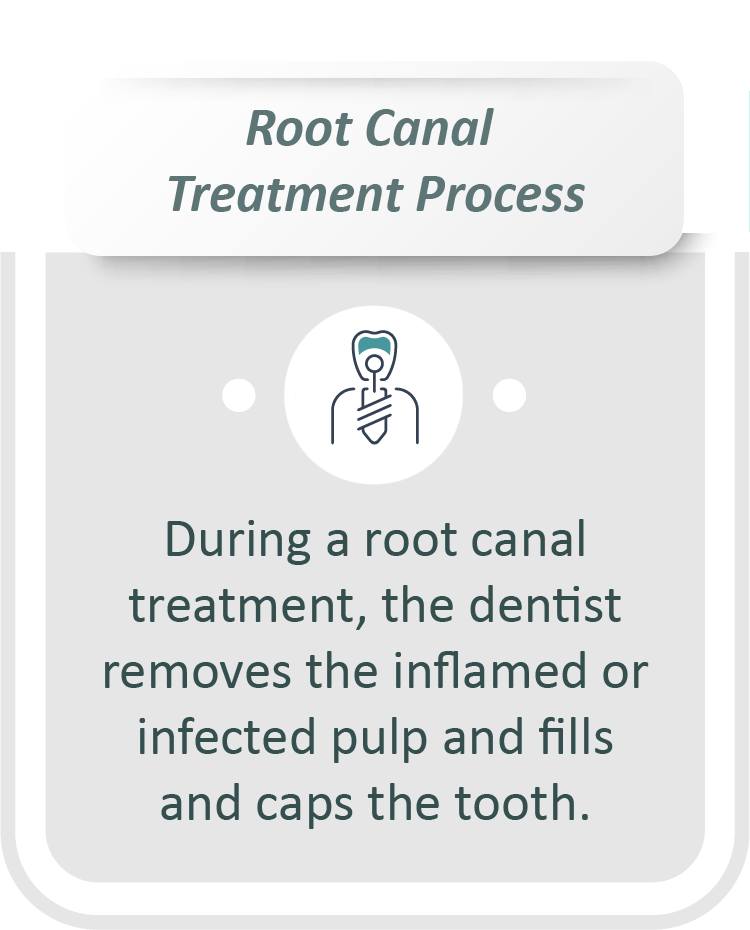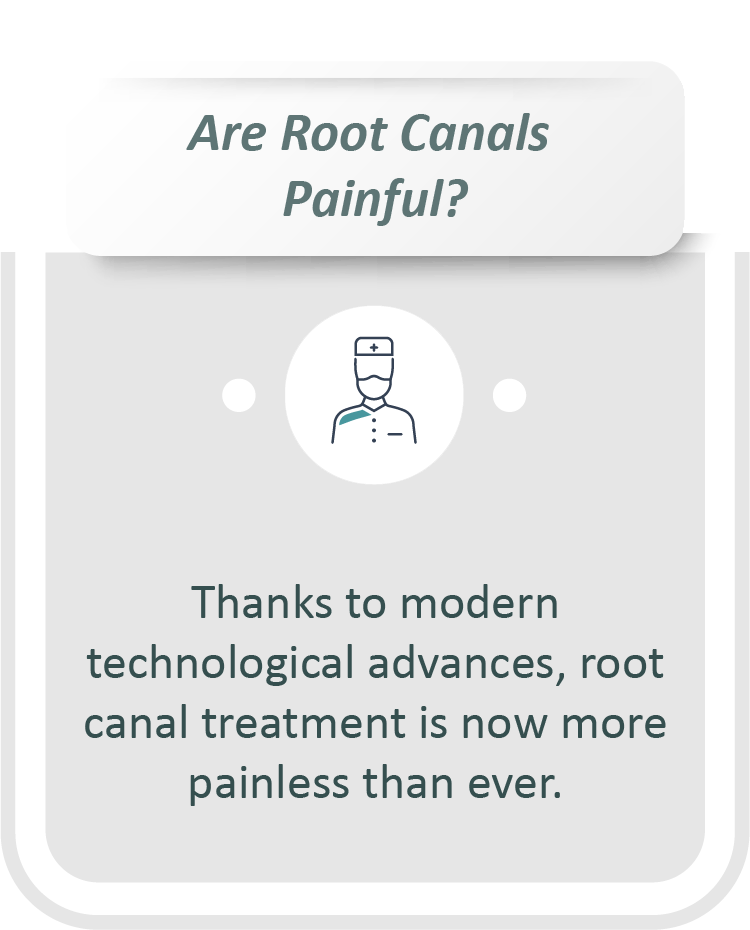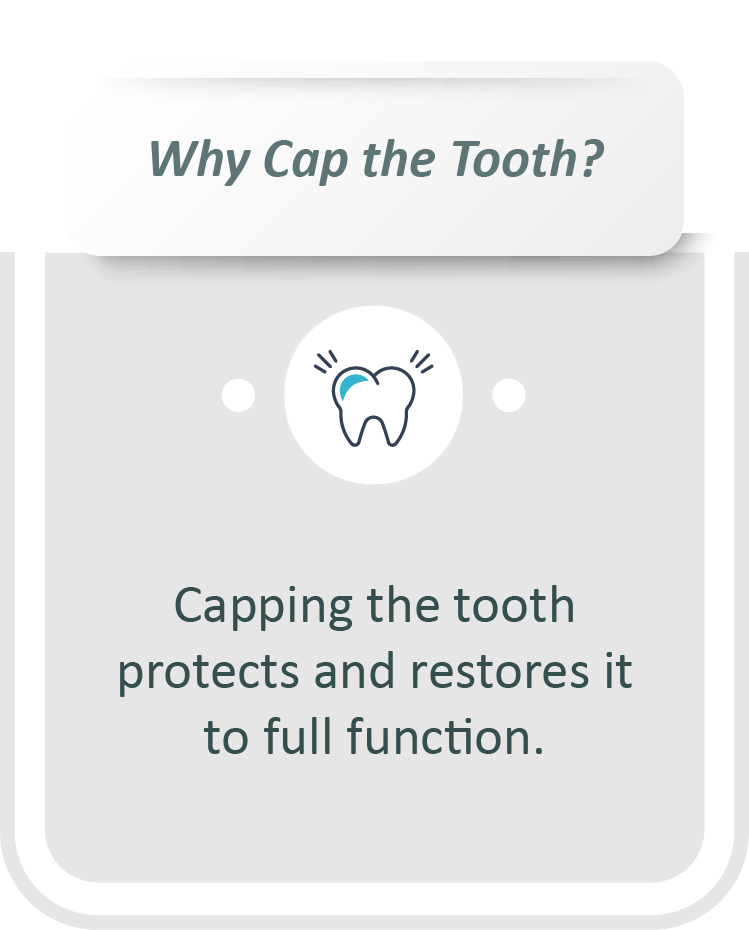Root Canal Treatment Federal Way, WA
A root canal is a restorative dental procedure that saves millions of teeth from inflammation and infection each year. Root canal treatment involves removing the damaged pulp and nerves from inside the tooth to eliminate bacteria and prevent the infection from spreading. If you have an infected tooth, root canal treatment may be able to save it.
Root canal treatment is available at Smile Center Dental Care in Federal Way and the surrounding area. This procedure can relieve dental pain and save your tooth. Call us at (253) 326-6230 to learn more about our services or schedule an appointment today.
The Purpose of Root Canals
Patients may need a root canal if they have severe tooth decay. Untreated decay can spread into the tooth pulp, triggering a painful infection.
Symptoms can include:
- Tooth pain
- Fever or facial swelling
- Cracked, broken, or discolored teeth
- Discolored gums
During a root canal, the dentist drills away decay. They also use small instruments to scoop out infected or inflamed pulp from within the tooth. Then, the dentist cleans and shapes the inside of the tooth.
After the root canal is complete, the dentist fills the tooth with a biocompatible material. Finally, the dentist places a small cap over the tooth. This covering is known as a crown. Crowns protect a fragile or damaged tooth from breakage.
“Patients may need a root canal if they have severe tooth decay.”
Benefits of Root Canals
Root canals can help patients avoid tooth extraction. During a root canal, a dentist works to restore a decayed or damaged tooth. This treatment can preserve smiles, prevent future decay, and strengthen damaged teeth.
Preserving a patient’s smile
Extractions can leave gaps in the patient's smile. Many patients feel self-conscious about their appearance after having a tooth pulled. Root canals boost the patient's confidence and enhance their appearance.
Preventing future decay
During a root canal, the provider removes all decay and infection. They clean the inside of the tooth to prevent the infection from returning. Without a root canal, decay can spread throughout the patient's mouth.
Strengthening a damaged tooth
Decayed teeth are vulnerable to breakage and injury. As part of a root canal procedure, the provider attaches a crown. This tooth-colored cap protects and supports the tooth.
“Without a root canal, decay can spread throughout the patient’s mouth.”
What Happens During a Root Canal
Treatment begins with an X-ray. Our dental team examines the patient's mouth and creates a treatment plan. They will also provide a numbing medication to ensure patient comfort during the procedure. The dental team places a dental shield around the tooth. This structure protects the tooth and prevents bacteria from spreading to other parts of the mouth. Once the shield is in place, the dentist drills into the top of the tooth.
We then remove decayed enamel and dentin by exposing infected pulp and cleaning out the inside of the tooth. During this stage of treatment, the dentist may use an antibiotic solution to kill bacteria. Then they fill and seal the tooth. Root canals also include a crown procedure. Each crown is custom-fitted and designed to match the patient's natural teeth. Crowns restore the appearance of a damaged tooth and improve oral function.
Root canals are an option for most patients, but some patients might receive improved results with a different procedure. If the patient's tooth is severely damaged, an extraction may be necessary. In rare cases, root canals can also trigger complications like a dental abscess. Rest assured that these complications are rare. Studies find that root canals have a success rate of up to 98%.
“Root canals are an option for most patients, but some patients might receive improved results with a different procedure.”
Check out what others are saying about our dental services on Google: Root Canal Treatment in Federal Way, WA
Root Canal Prevention
Good oral hygiene can help patients avoid root canals. Most patients who need root canals have severe tooth decay. Patients can prevent decay by brushing and flossing twice daily and avoiding sugary foods and drinks. A high-sugar diet is linked to an increased risk of tooth decay.
Routine dental care is also essential. During a dental exam and cleaning, dentists remove decay-causing plaque. They also provide treatment for any cavities. Patients who undergo cavity treatment right away are less likely to need a root canal.
Some patients may require a root canal after a tooth injury. Patients can avoid injury by wearing a mouthguard while playing sports. Never attempt to cut objects or open packaging with the teeth. Chewing on hard objects can lead to tooth breakage and oral infection.
“Patients who undergo cavity treatment right away are less likely to need a root canal.”
Questions Answered on This Page
Q. What are the benefits of a root canal?
Q. What happens during root canal treatment?
Q. How can I avoid a root canal?
Q. What are some alternatives to a root canal?
People Also Ask
Q. How common are root canals?
Q. Are there any alternatives to root canals?
Q. Is increased sensitivity to temperature a sign that endodontic surgery is necessary?
Q. Who performs restorative dentistry?
Q. How can you save a tooth with a root canal?
Q. Are pain and tenderness when touching the teeth or chewing a sign of a problem?
Q. What are the services offered endodontists vs. general dentist?
Root Canal Alternatives
Sometimes, the dental team may recommend an extraction. During an extraction, the provider removes the entire tooth. Extractions can resolve deep infections by removing the affected tooth. However, tooth loss can lead to future dental problems. It is better to avoid extraction whenever possible.
“Extractions can resolve deep infections by removing the affected tooth.”
Frequently Asked Questions
Q. What is a root canal?
A. Root canals can remove infected or inflamed pulp. Pulp is a soft tissue that helps keep the tooth anchored within the mouth. It supplies blood flow and connects the tooth to nerve endings. During a root canal, a dental provider cleans out the pulp and fills the tooth. They also place a crown on the tooth to protect it from future damage.
Q. What are some alternatives to a root canal?
A. Root canals are a good option for most patients since they preserve the natural tooth. Patients who keep their natural teeth may avoid future dental problems. Preserving the teeth prevents jawbone loss, spacing issues, and jaw misalignment.
However, a root canal is not right for everyone. If the tooth becomes severely damaged, the dentist may opt for extraction instead. During an extraction, the dentist removes the entire tooth. He or she can then prepare a false tooth to fill the gap.
Q. Are root canals painful?
A. Modern root canals using numbing medications to prevent discomfort. Some patients may experience soreness after their root canal. However, these side effects usually disappear within a few days.
Q. How much do root canals cost?
A. Costs can vary depending on insurance coverage. As a rule, root canals carry a higher price tag than extraction. However, root canals preserve the tooth and may help prevent the need for future dental care. Our office team can help you compare treatment costs.
Q. Can children receive a root canal?
A. Adults and children can receive root canals for permanent teeth. But if a child develops severe decay or inflammation within a baby tooth, the dental provider may recommend an extraction. Extraction may be the right option if the child will soon lose the affected tooth.
In some cases, however, the provider may opt to perform a baby root canal. These procedures are similar to an adult root canal. Baby root canals preserve the tooth while preventing the infection from spreading.
Endodontic Terminology
Call Us Today
If your tooth is injured or infected, do not hesitate to seek treatment. Our team at Smile Center Dental Care can help save your tooth. Call us today at 253-326-6230 to learn more about our services or schedule an appointment.
Helpful Related Links
- American Dental Association (ADA). Glossary of Dental Clinical Terms. 2024
- American Academy of Cosmetic Dentistry® (AACD). Home Page. 2024
- WebMD. WebMD’s Oral Care Guide. 2024
About our business and website security
- Smile Center Dental Care was established in 2005.
- We accept the following payment methods: American Express, Cash, Check, Discover, MasterCard, and Visa
- We serve patients from the following counties: King County and Pierce County
- We serve patients from the following cities: Federal Way, Auburn, Kent, Des Moines, Tacoma, Fife, Milton, Edgewood, SeaTac, and Algona
- National Provider Identifier Database (1770035289). View NPI Registry Information
- Norton Safe Web. View Details
- Trend Micro Site Safety Center. View Details
Back to top of Root Canal Treatment















